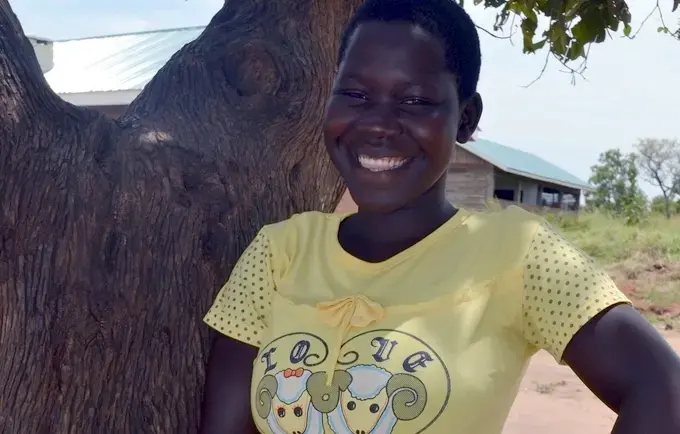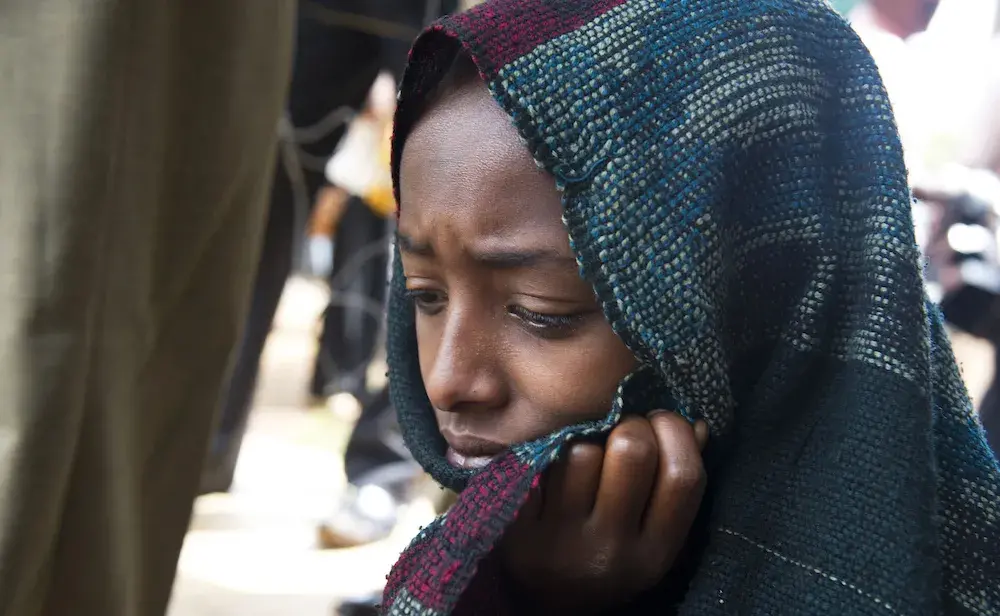BEIRA, Mozambique – United Nations Secretary-General António Guterres visited regions of Mozambique that were affected by Cyclone Idai*, one of the worst-ever tropical cyclone to affect the southern hemisphere, to see at first hand the progress and challenges experienced in the country's reconstruction process, after facing two consecutive cyclones in two months.
The government and the authorities have been committed to help and unite forces for the reconstruction of the country.
"The Mozambican people have been victims of a tragedy and need to manage not only the physical impact but from the human point of view, the human suffering of the people. I want to point out that the government and the authorities have been committed to help and unite forces for the reconstruction of the country," Mr. Guterres said during a press conference.
friendly space at Mandruzi resettlement centre near Beira, where
displaced women discussed their vulnerabilities and needs.
© UNFPA Mozambique/Alex Muianga
In Mandruzi resettlement centre, about 40 minutes from the city of Beira, Mr. Guterres talked with people affected in the joint crisis, learned about actions carried out by the United Nations agencies in partnership with the Mozambican government, and met with a group of 15 women currently facing great vulnerability.
Pregnant women, heads of families and people with physical disabilities spoke to the Secretary-General in a 'women-friendly space', one of the interventions by the United Nations Population Fund (UNFPA) in humanitarian emergency settings.
Activist and leader of the women in the Mandruzi resettlement neighbourhood, which now houses 375 families, Celina Antonio helped to choose women with different stories and profiles for the meeting with Guterres.
We talked about the difficulties here in the neighbourhood, about our greatest needs, about our losses. He said a lot of help is still going to come and seemed concerned, not only about the losses but also how we would rebuild our future.
UN Secretary-General for support with electricity, a school, a hospital
a market and housing. © UNFPA Mozambique/Natalia da Luz
"It was a very important meeting. We talked about the difficulties here in the neighbourhood, about our greatest needs, about our losses. He asked questions and listened to many of us, and the women said they need electricity, a school, a hospital, a market, and houses. He said a lot of help is still going to come and seemed concerned, not only about the losses but also how we would rebuild our future," said Ms. Antonio.
Mr. Guterres positioned himself at the entrance to the women-friendly space while they spoke to him from inside the tent. In a relaxed manner, the Secretary-General stated that this space was dedicated to women and so he would stand at the door, respecting the rules.
The women-friendly space, managed by UNFPA in partnership with the Department of Gender, Child and Social Action, provides psychosocial support, lectures and debates on gender-based violence awareness, as well as many activities which can be used to encourage the livelihoods of women, such as the production of clay pots and straw baskets. Located in 12 resettlement centres in the province of Sofala, these spaces have already provided support to thousands of women.
Agueda Nhantumbo from UNFPA facilitated the meeting with the UN Secretary-General, together with Natalia Rosa representing the Department of Gender, Children and Social Action. Partners from UNHCR were also present.
The women also took the meeting as an opportunity to ask for support for the development of their region. It was a very positive and important meeting for them.
"The Secretary-General understood the difficulties of the women here, the benefits that this space brought to their lives in a resettlement neighbourhood, and the constraints they have experienced and are currently experiencing. The women also took the meeting as an opportunity to ask for support for the development of their region. It was a very positive and important meeting for them," said Ms. Agueda.
* Cyclone Idai, which hit Mozambique on March 14, affected more than 1.8 million people and left more than 600 dead. Large areas of Zimbabwe and Malawi were also affected by severe flooding.




